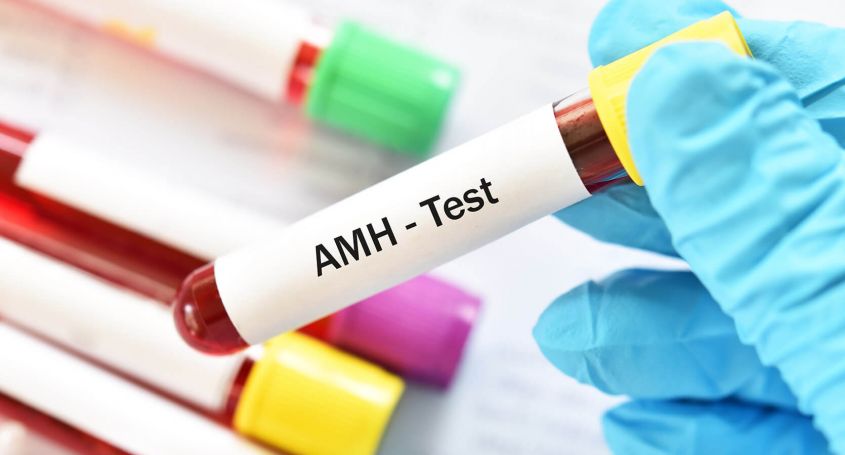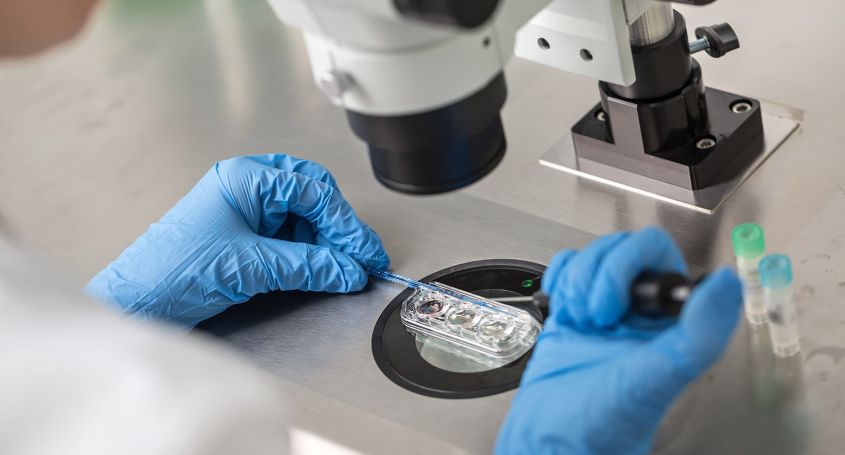Hormones play a fundamental role in fertility. Understanding their function and how they interact is essential to diagnosing and treating many reproductive problems.
What are hormones?
Hormones are chemicals that act as messengers and regulate many physiological processes in the body. In the context of fertility, hormones play an essential role in regulating the menstrual cycle, ovulation, and pregnancy.
Main hormones that regulate fertility
Follicle-stimulating hormone (FSH)
FSH is secreted in the pituitary gland and its main function is to stimulate the growth and development of immature ovarian follicles. Its production is highest in the early follicular phase of the menstrual cycle (between days 1 and 5) and decreases as the follicles release estrogen.
Luteinizing hormone (LH)
LH is also produced by the pituitary gland and is responsible for triggering the final maturation of the follicle and eventually ovulation. LH levels help determine if ovulation occurs normally.
Progesterone
Progesterone is a steroid hormone produced by the corpus luteum during the second phase of the menstrual cycle (luteal phase). Its main function is to prepare the endometrium for embryo implantation:
- If implantation does not occur, the progesterone level drops, and menstruation begins.
- If implantation occurs, the corpus luteum continues to produce progesterone until about the 10th week of pregnancy, at which point the placenta assumes its synthesis.
Throughout pregnancy, progesterone contributes to the maintenance of uterine tissue and prepares the mammary glands for lactation. Its levels decrease at the end of gestation, which contributes to triggering labor.
Antimüllerian hormone (AMH):
AMH is produced by granulosa cells of the antral and preantral follicles of the ovary. Its main function is to regulate follicular growth and development.
When and how are hormone levels measured?
The study of the hormonal profile is carried out through a blood sample, usually between days 3 and 5 of the menstrual cycle, when the hormones are in a basal state. Although there are some exceptions:
- Progesterone levels: they are measured during the luteal phase, that is, from the time ovulation occurs.
- AMH: Their levels do not vary significantly during the cycle, so they can be tested at any time.
Hormonal imbalances and their impact on fertility
The study of the hormonal profile provides a lot of information about female fertility, as it allows:
- Assess ovarian reserve: AMH, along with antral follicle count, is the main marker for assessing ovarian reserve. AMH values below 0.7 ng/mL, together with elevated FSH values (>10-20 IU/l), are indicative of low ovarian reserve.
- Detect ovulatory disorders: Hormonal imbalances can be related to ovulation problems, such as polycystic ovary syndrome (PCOS), hypothalamic amenorrhea, or premature ovarian failure.
The hormonal study is a key tool for the diagnosis of possible reproductive problems and decision-making in assisted reproduction treatments. Therefore, if you have any doubts or difficulties in achieving pregnancy, it is important to go to fertility specialists who can interpret hormone levels and recommend the most appropriate treatment for each case.
Dr. Cristina Guix
Gynecologist specialized in fertility at Barcelona IVF





















